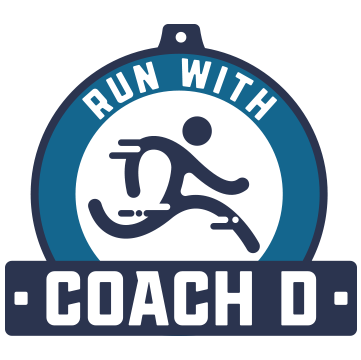How do I choose my first marathon? (or half marathon!)
Congrats! You’ve made the decision to take the plunge and commit to your first half or full marathon! But how do I decide what race to run? Maybe you’re lucky and you were peer pressured into a race and you don’t have to make the decision. But if you’re on your own and have been googling and scrolling non-stop to find the “perfect” first race, take a few minutes to read my considerations for a first half or full marathon. Of course this is not an exclusive lift of considerations and some of the factors below may be of higher or lower importance to you. Just my ten cents for first time athletes!
Time of Year. Aside from race day weather you will also want to consider the type of weather you will be training in. For many training in the heat can be rough, so summer training may be an important factor in your decision. Say your target race is in September and you live in the Northeast. A bulk of your training runs will be July and August - the hottest time of the year. Even shifting to a November race may give you a reprieve from the hottest days. Now I will reminder you, there is no way to escape any inclement or tough weather but if it something that you are impacted by a lot then you will want to rank this consideration pretty high on your list. Marathon training: look at the three months before your race. Half Marathon: look at the two months before your race.
Your work schedule. Training for an endurance race is almost like a part time job. I advise many of my athletes to share their goals with their co-workers and their supervisors. Letting them know it is a “X” amount of weeks committment and you may have more rigid start or end times to your working day. Do you work in an industry with high and low times of the year? This will be something to consider when mapping out 16, 18 or even 20 weeks before your race. Added stress from training will not be beneficial to your busy season at work.
Travel. To stay local or to find a destination race - a question I receive all the time! For most new runners, a local race is usually my suggestion because you can sleep in your own bed, do not have to deal with new restaurants and the stress of travel on race day. Does that mean that you cannot hack it if it’s your first race? Absolutley not! Just something to consider. Another benefit to racing locally? You can run the course during your training and be better prepared for race day. Doing a race simulation/dry run will be much easier if you’re picking a local race.
Race size. Go big or go home right? Not always. Just like Goldilocks had to find the serving that was just right - I find the same for first time races. You might be thinking to do a large race like Chicago, New York or CIM for your first marathon is great because you won’t be last or you won’t have to worry about being alone on the course. But the logistics of larger races can make the days leading up to the race stressful, spend too much time on feet and make race morning a maze. For example, the New York Marathon requires athletes take transportation (ferry or bus) to the start in Staten Island at 4-6AM. Then wait in athlete’s village for 3-4 hours until their wave starts. This can make an already stressful day even more stressful. Finding a race with 4-8,000 finishers for a first time marathon I find is a sweet spot for a first timer. Races of this size tend to have pacers, well equipped course aid stations, modest expos and of course plenty of people to run with on the course!
Course profile/elevation. Flat is best right? Not always. When I talk with first time marathoners many will tell me they only want to do a race that is flat - and I get it, flat feels “easy”. There are no hills, which to new runners equal hard and make you slow. Rolling hills provide you with the ability to use different different muscles while completing 26.2 miles. When running a flat course runners tend to feel more stress on their lower legs (cramping, fatigue, etc) Remember hills pay the bills and make you a stronger runner overall. Of couse I would advise not taking on a course that has an elevation gain of 2,500 feet for your first race but 300-800ft of gain over 26.2 is just enough to keep your leg muscles entertained.
It’s exciting to you! Lastly, choose a race that excites you! Don’t pick a hometown race just because I said so. You are going to be the person running 26.2 (or 13.1) miles so you better enjoy it! Maybe the medal is super motivating to you or you love the area of town the race goes through. Maybe you love the city and haven’t been back so this will be a nostalgia run. When the run means something to you, you will be more motivated to train and stick to your plan. This is your race, enjoy it!
Where do I find my races? Running in the USA is a great place to find races throughout the United States. I love that you can filter by distance and month. Super helpful when you know the month you want to race and you can even filter by region. Another great resource is your local running store/running club. Asking other runners for their recommendations and experiences can help to guide you as well! Happy Running!
